In his latest graphic novel, Pau immortalises the “incredible” story of his grandfather, who spent a decade “without being master of his destiny” under the flags of five countries during the Spanish Civil War and the Second World War.
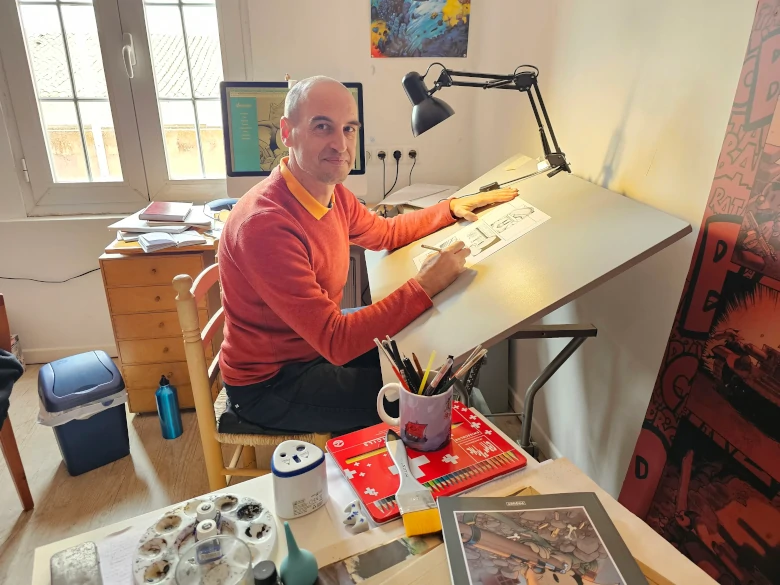
The cartoonist Pau at work in his studio in Manacor. Photo: J.S.
Pau Rodríguez’s eyes light up when he talks about his grandfather. He remembers with immense affection the “grandpa” stories that Vicente used to tell him during the summers they spent together in Can Pastilla. “I always sensed that his life had not been normal”, he explains. Seven years of exhaustive research and thousands of hours diving through old diaries, documents, photos in black and white, confirmed that his grandfather had indeed not lived a normal life. Far from it. Vicente Jiménez-Bravo, a native of Ciudad Real, spent from the age of 17 to 27 (1936-1946) deprived of his free will under the yoke of Las cinco banderas (The Five Flags), which give the title to the Mallorcan artist’s most personal work.
His grandfather fought on the Republican side in the Civil War, was in the refugee camps in France, fought in British uniform in the II World War, was enslaved by the Nazis in France and, after escaping, finally returned to Spain as a repatriate, where he spent a year of forced labour for being “disaffected” with the Franco regime and another three doing his military service in Mallorca, where he stayed to live. “Human beings are capable of adapting to the worst situations, as my grandfather used to say”, says the illustrator.
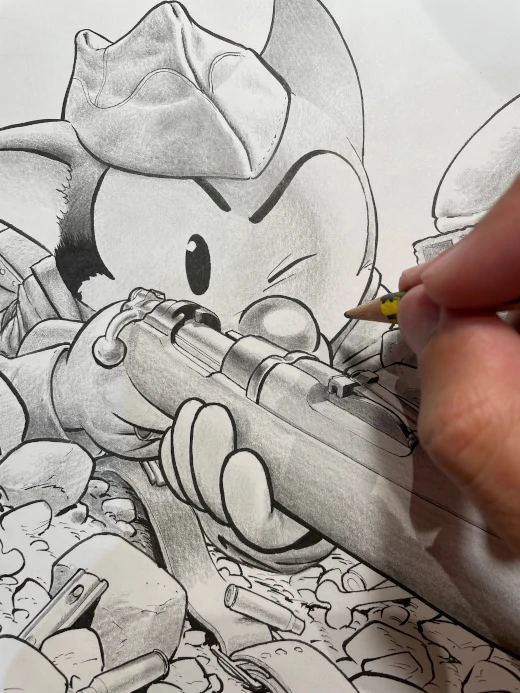
Sketch of Pau’s The Five Flags. Photo: P.R.
An “extraordinary and terrible” odyssey
It was in 2017 when Pau decided to capture this “extraordinary and terrible” odyssey in the pages of a comic book. “I always had it in mind and I said to myself: I have to do it no matter what it takes”, he recalls. After a successful crowdfunding campaign, the Spanish version of the first volume was published in December 2023 by Escápula Cómics, his publishing alter ego. And in March of this year, Las cinco banderas made the leap to the French-speaking market, the most important in the world after the Anglo-Saxon one, through the Swiss publisher Paquet.
“I thought about telling a fictional story, but it wouldn’t have been a full-fledged homage. It would have been a waste of unique and precious material” he says. From the beginning, he wanted the work to have “a documentary value, so that the descendants of Spaniards who went through something like this would know what life was like at that time. I couldn’t and didn’t want to get anything wrong”, adds Pau. Nor has he renounced his particular style, where the protagonists are “funny animals”. And the reason is very simple. “I think emotions are better conveyed with animals. Everything bad that happens to them hurts you more, with their big heads and big eyes”, he says with a laugh, adding “besides, I draw them better than humans”.
Childhood passion
Pau’s love affair with the world of comics began as a child, devouring Mortadelo y Filemón and Asterix and Obelix comics. A course given at his school by the cartoonist Max convinced him that his future lay pencil in hand. “Until then, I only saw one drawing next to another. Max discovered a new language for me”, he recalls. From there, he began to dabble in fanzines, completed his studies as an illustrator at the Escola d’Arts i Oficis and got his first jobs as a cartoonist and illustrator.
Since then, Pau has published more than a dozen comics. But his most important work is the Saga of Atlas and Axis, which has been published in twelve languages in more than fifteen countries on three continents. “For me it is more gratifying to publish in several countries than to sell a lot. It means that you have connected with people from different cultures”, acknowledges Pau, who adds that “it was a goal I set myself when I started drawing as a child”. Challenge accomplished.


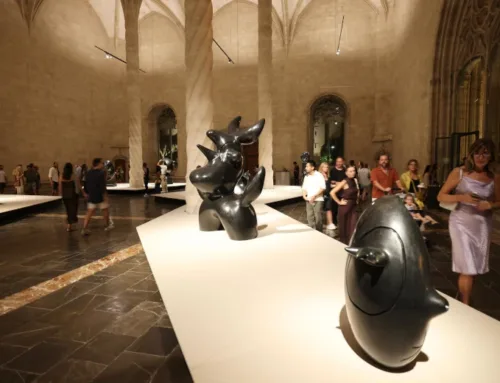
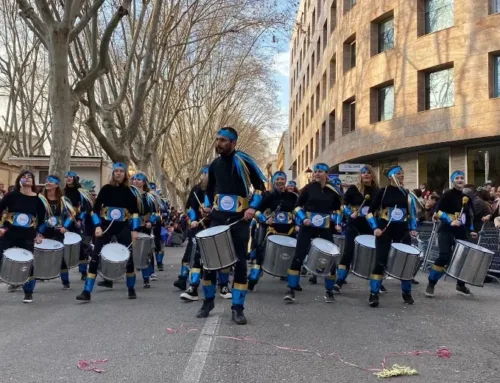

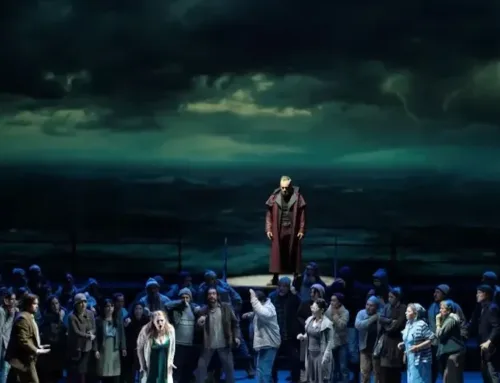


Leave A Comment